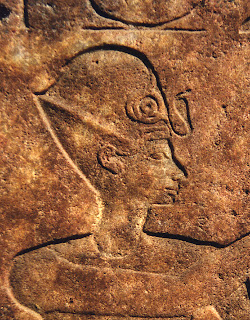
When discussing ancient Greek culture, studying the legendary poet Homer is important. His famous works of poetry are seen as legendary and without error. Due to the brilliance of his works, the most famous being The Iliad and The Odyssey, he has been acclaimed as the greatest poet of ancient times. Some of his works are so popular and well known, they have become essential reading when studying ancient Greece. Another important purpose of his works is to provide evidence of the intelligence of life in Mycenean, Greece. (Nardo,117)
"As portrayed in Homers works, society was male dominated and generally characterized by a competitive spirit, the desire to be recognized as "best" (aristos) and thereby to aquire honor and respect.(time)" (Nardo,26)
Even though Homer is one of the most famous of the ancient Greeks, there is not much that is truly known about his life. There are no official records of his birthplace, or what he was actually like. Some historians do have at least some idea of where Homer was born. Some believe that he was born in a section off the west coast of Asia Minor called Ionia. Other historians believe he was a native of the island Chios which is located in between Greece and Turkey. Most historians believe that he lived around 850 B.C.
As mentioned earlier, Homer’s most famous works were The Iliad and The Odyssey. These were both epic poems that are hundreds of pages long. Both of these poems were written in the third person, with Homer acting as a narrator of the story; Homer makes no reference to himself in either poem. This way of writing completely conceals his personality.
The Iliad is the story of the hero Achilles. A huge battle is raging in Greece and Achilles does not want to fight. The gods allow him to not participate in the battle. A famous villain named Hector is destroying the Greek army. Achilles steps into battle and defeats Hector. The gods then give Achilles the choice between fame for all eternity and a long happy life without any fame. In order to be famous for all eternity, Achilles must die at a young age. First, he decides to live a long life without fame, but after he learns of his best friend’s death in the battle, he decides to die young.
The Odyssey is the story of another famous hero named Odysseus. He is the hero that decided to provide Troy with the legendary “Trojan Horse.” This was a wooden horse that was offered to the citizens of Troy as a god for them to worship. The horse was filled with Greek soldiers that slaughtered the entire town that the horse was being held in. After the defeat of his enemies with the use of the wooden horse, Odysseus tries to return to his wife and home. Since the gods are angry with him, it takes ten years to finally reach his home. The gods then offer Odysseus a choice. He can live on a far off deserted island and become like a god, or return to his home and wife and be mortal. He eventually chooses to be mortal and return to his home.
Nardo, Don. Lost Civilizations:The Ancient Greeks. San Diego Ca: Lucent Books, 2001.
Nardo, Don. Living in Ancient Greece. Farmington Hills MI: Green Haven Press, 2004

